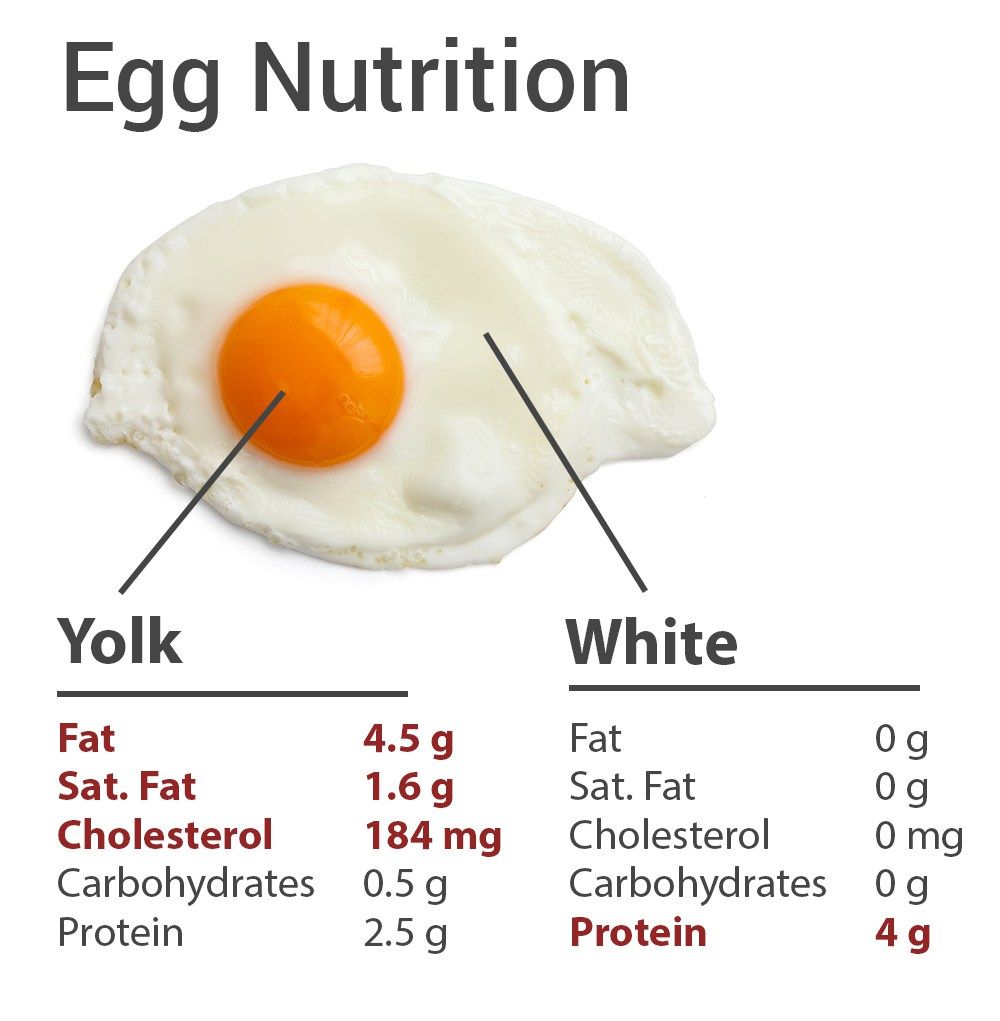Carbs in Eggs: Debunking Myths and Understanding Nutrition
In the realm of nutritional misconceptions, the question of carbs in eggs has sparked confusion for many health-conscious individuals. Are eggs truly laden with carbohydrates, or is this notion a myth that needs to be cracked open? In this comprehensive guide, we dive into the nutritional composition of eggs and unveil the truth about their carb content.
Carbs: The Role and Types
To understand the truth behind carbs in eggs, it’s essential to grasp the fundamental role of carbohydrates in our diets. Carbohydrates are a macronutrient that provides energy to fuel our bodies. They come in two main types: complex and simple carbohydrates.
Complex Carbohydrates
Complex carbohydrates are found in foods like whole grains, legumes, and vegetables. They contain longer chains of sugar molecules, taking time to break down and release energy gradually. These carbs provide sustained energy and are a key component of a balanced diet.
Simple Carbohydrates
Simple carbohydrates, on the other hand, include sugars that are quickly digested and absorbed by the body. They’re found in foods like fruits, sweets, and sugary beverages. While they can provide a quick energy boost, excessive consumption of simple sugars can lead to energy crashes and other health concerns.

Nutritional Composition of Eggs
Before delving into the carb content of eggs, let’s take a closer look at their overall nutritional profile. Eggs are often referred to as a nutritional powerhouse, and for good reason. They are a rich source of essential nutrients, including protein, healthy fats, vitamins, and minerals.
Protein: The Star Nutrient
Eggs are celebrated for their high-quality protein content. A single large egg contains about 6 grams of protein, making it a valuable source for muscle repair, growth, and overall body function.
Healthy Fats: A Balanced Addition
While eggs do contain fat, the majority of this fat is unsaturated and considered heart-healthy. The yolk, in particular, contains important fat-soluble vitamins like vitamin D and vitamin E.
Vitamins and Minerals
Eggs boast an impressive array of vitamins and minerals, including vitamin B12, riboflavin, selenium, and choline. Choline, in particular, plays a vital role in brain health and development.
Carbs in Eggs: The Truth Unveiled
As we turn our attention to the carb content of eggs, it’s important to address the prevailing myth that eggs are high in carbohydrates. In reality, the carbohydrate content in eggs is minimal and often negligible.
The Carb Count in Eggs
A single large egg typically contains less than 1 gram of carbohydrates. This minute carb content stems from the natural sugars present in the egg, which are primarily lactose. Considering that an average daily carbohydrate intake can range from 200 to 300 grams, the carb content in eggs is practically inconsequential.
Why Eggs Are Low in Carbs
The low carb count in eggs can be attributed to their biological function. Eggs serve as the embryonic environment for a developing chick. The majority of their nutritional makeup is tailored to providing essential nutrients, proteins, and fats for the growing embryo.
Benefits of Low Carbs in Eggs
While the low carb content in eggs might come as a surprise to some, it offers several benefits that align with various dietary goals and health objectives.
Ideal for Low-Carb Diets
For individuals following low-carb or ketogenic diets, eggs are a near-perfect food choice. Their negligible carb content allows those on these diets to enjoy the nutritional benefits of eggs without compromising their carbohydrate goals.
Satiety and Weight Management
Eggs are renowned for their ability to induce a feeling of fullness. The combination of protein and healthy fats not only provides sustained energy but also helps curb hunger, potentially supporting weight management efforts.
Stable Blood Sugar Levels
Due to their low carbohydrate content, eggs have a minimal impact on blood sugar levels. This can be especially advantageous for individuals with diabetes or those aiming to stabilize their blood sugar response to meals.
Carbs in Different Egg Preparations
The carb content of eggs remains consistent across various cooking methods, but certain preparations might impact their overall nutritional profile.
Scrambled Eggs
Scrambled eggs, a breakfast favorite, retain their low carb count. Adding vegetables and cheese might introduce a marginal increase in carbs, but it remains negligible.
Boiled Eggs
Boiled eggs, whether hard-boiled or soft-boiled, retain their nutritional integrity. The process of boiling does not alter their carbohydrate content.
Fried Eggs
Fried eggs cooked in butter or oil might contain slightly more calories due to the added fats. However, the carb content remains minimal.
Eggs in Specialized Diets: Keto, Low-Carb, and More
The minimal carb content in eggs makes them a versatile and valuable addition to specialized diets that prioritize low-carbohydrate consumption.
Eggs and the Ketogenic Diet
The ketogenic diet, known for its ultra-low-carb approach, embraces eggs as a staple. Eggs provide essential proteins and fats while fitting seamlessly within the diet’s carb restrictions. They can be enjoyed as omelets, frittatas, or simply hard-boiled for a quick and satisfying snack.
Eggs and Low-Carb Diets
Eggs shine in various low-carb diets that emphasize whole foods and nutrient-dense choices. Whether you’re following Atkins, Paleo, or a general low-carb approach, eggs offer a nutrient-packed option to support your dietary objectives.
Eggs for Balanced Nutrition
Even beyond specialized diets, eggs contribute to balanced nutrition. Their protein content aids in muscle maintenance, their healthy fats support brain health, and their abundance of vitamins and minerals fortify overall well-being.
Nutrient-Rich Breakfast: Eggs and Balanced Carbs
For a well-rounded breakfast that combines the benefits of eggs with balanced carbohydrates, consider these options:
Whole Grain Toast with Scrambled Eggs
Pair scrambled eggs with whole grain toast for a satisfying breakfast that provides protein, fiber, and complex carbs for sustained energy.
Veggie Omelet with Quinoa
Create a veggie-packed omelet and serve it alongside cooked quinoa. This combination offers protein, vitamins, minerals, and a dose of complex carbs.
Greek Yogurt Parfait with Berries and Eggs
Enjoy Greek yogurt layered with fresh berries and a hard-boiled egg. This combination offers a blend of protein, probiotics, antioxidants, and healthy carbohydrates.
Dispelling Myths: Egg-Related Carb Misconceptions
As we conclude our exploration of carbs in eggs, it’s important to address common myths that can cloud nutritional understanding.
Myth: Eggs Are Carb-Loaded
The notion that eggs are high in carbohydrates is a persistent misconception. Eggs are remarkably low in carbs and primarily provide protein, healthy fats, vitamins, and minerals.
Myth: Eggs Should Be Avoided Due to Cholesterol
Eggs do contain cholesterol, but the relationship between dietary cholesterol and blood cholesterol is complex. For most people, moderate egg consumption is unlikely to significantly impact cholesterol levels.
Frequently Asked Questions About Carbs in Eggs
Are eggs high in carbohydrates?
No, eggs are not high in carbohydrates. They contain minimal carbs, usually less than 1 gram per egg.
Can I include eggs in a low-carb diet?
Absolutely. Eggs are a staple in low-carb diets due to their negligible carb content and rich nutrient profile.
Do different types of eggs have different carb counts?
The carb content remains consistent across different types of eggs, whether organic, free-range, or conventional.
Are scrambled eggs with veggies still low in carbs?
Yes, adding vegetables to scrambled eggs introduces only a marginal increase in carbs, which remains insignificant.
Can eggs be part of a ketogenic diet?
Yes, eggs are an excellent choice for a ketogenic diet due to their low carb content and high-quality protein.
Do eggs affect blood sugar levels?
Eggs have minimal impact on blood sugar levels due to their low carbohydrate content, making them suitable for diabetes management.
Are eggs a complete source of protein?
Yes, eggs are considered a complete protein source as they contain all essential amino acids necessary for the body.
Can eggs be consumed on a vegetarian diet?
Eggs are a source of animal protein, so their inclusion in a vegetarian diet depends on individual dietary preferences.
How do eggs contribute to weight management?
Eggs’ high protein content and satiating effect can help control hunger and support weight management efforts.
Is cholesterol in eggs a concern for heart health?
For most people, moderate egg consumption is unlikely to significantly impact cholesterol levels or heart health.
Conclusion:
Eggs, with their minimal carb content and exceptional nutritional profile, have earned their place as a nourishing and versatile food choice. Whether you’re focused on low-carb diets or simply aiming for balanced nutrition, eggs offer a valuable source of essential nutrients without burdening you with unnecessary carbs.




